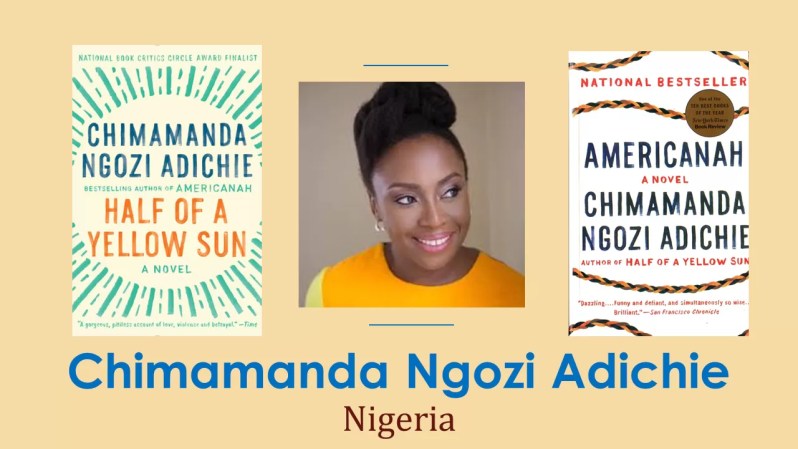African Fiction (Part 1)
If a room without books is like a body without a soul then a house without Adichie’s fierce writing is like the earth without the sun.

“The single story creates stereotypes and the problem with stereotypes is not that they are untrue, but that they are incomplete. They make one story become the only story.”
~Chimamanda Ngozi Adichie, the Danger of a Single Story (TED Talk, 2009)
I first encountered Adichie through Purple Hibiscus and its memorable characters in 2014. The novel was set in Nigeria and it tackled the issues of oppression, domestic violence and religious intolerance. The book had been published a year earlier when the author was only 26. It seemed such an incredible feat back then.
African Fiction: Extract from Purple Hibiscus
Papa sat down at the table and poured his tea from the china tea set with pink flowers on the edges. I waited for him to ask Jaja and me to take a sip, as he always did. A love sip, he called it, because you shared the little things you loved with the people you loved. Have a love sip, he would say, and Jaja would go first. Then I would hold the cup with both hands and raise it to my lips. One sip. The tea was always too hot, always burned my tongue, and if lunch was something peppery, my raw tongue suffered. But it didn’t matter, because I knew that when the tea burned my tongue, it burned Papa’s love into me. But Papa didn’t say, “Have a love sip”; he didn’t say anything as I watched him raise the cup to his lips.
Jaja knelt beside Mama, flattened the church bulletin he held into a dustpan, and placed a jagged ceramic piece on it. “Careful, Mama, or those pieces will cut your fingers,” he said.
I pulled at one of the cornrows underneath my black church scarf to make sure I was not dreaming. Why were they acting so normal, Jaja and Mama, as if they did not know what had just happened? And why was Papa drinking his tea quietly, as if Jaja had not just talked back to him? Slowly, I turned and headed upstairs to change out of my red Sunday dress.

In 2007, Half of a Yellow Sun, her second novel about the Biafra War would bring her literary stardom and legendary stature. She won the prestigious Orange Prize for Fiction which is awarded to the best full-length novel written by a woman of any nationality. A year later, she received a ‘genius’ grant amounting to five hundred thousand dollars enabling her to pursue her literary career.
She went on to write a collection of critically-acclaimed short stories, The Thing Around Your Neck, which was published in 2009. Americanah, a novel about love and migration, followed in 2013, grabbing the National Book Critics Circle Award and the Chicago Tribune Heartland Prize in its wake.
Adichie has also written groundbreaking essays such as We Should All Be Feminists (2014) and Dear Ijeawele, or a Feminist Manifesto in Fifteen Suggestions (2017).
It was her eloquence that struck me when I first saw her talk in an interview. Over the years, her courage and fearlessness in fighting against human indignities have sealed her position as one of African fiction best ambassadors.
Chimamanda remains an influential writer and an inspiration to many young women around the world.
Further Exploration:
Half of a Yellow Sun:
If you would like to read more about this author, you can buy the book “Half of a Yellow Sun” here. It is an interesting read and its themes range from love, war, colonialism and ethnic differences. You can also visit the author’s website here.
Use this template to find more information about the writer:
Watch: